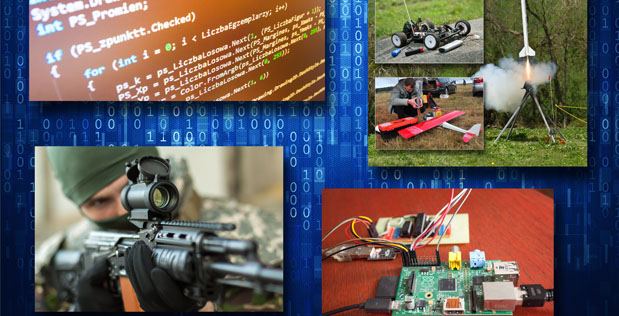DARPA’s “Improv” effort asks the innovation community to identify commercial products and processes that could yield unanticipated threats
For decades, U.S. national security was ensured in large part by a simple advantage: a near-monopoly on access to the most advanced technologies. Increasingly, however, off-the-shelf equipment developed for the transportation, construction, agricultural and other commercial sectors features highly sophisticated components, which resourceful adversaries can modify or combine to create novel and unanticipated security threats. To assess this growing security challenge and identify specific potential risks, a new DARPA effort will ask experts across multiple disciplines to look at today’s bustling tech marketplace with an inventor’s eye and imagine how easily purchased, relatively benign technologies might be converted into serious security threats. The endeavor is dubbed “Improv”, an abbreviated reference to the potential for improvising with widely available technology to create new and unanticipated risks.
“DARPA’s mission is to create strategic surprise, and the agency primarily does so by pursuing radically innovative and even seemingly impossible technologies,” said program manager John Main, who will oversee the new effort. “Improv is being launched in recognition that strategic surprise can also come from more familiar technologies, adapted and applied in novel ways.”
Improv will explore ways to combine or convert commercially available products such as off-the-shelf electronics, components created through rapid prototyping, and open-source code to cost-effectively create sophisticated military technologies and capabilities. To bring a broad range of perspectives to bear, DARPA is inviting engineers, biologists, information technologists and others from the full spectrum of technical disciplines—including credentialed professionals and skilled hobbyists—to show how easily-accessed hardware, software, processes and methods might be used to create products or systems that could pose a future threat. DARPA will assess candidate ideas and offer varying levels of support to develop and test selected proposals. The emphasis will be on speed and economy, with the goal of propelling winning submissions from concept to simple working prototypes within about 90 days.
“DARPA often looks at the world from the point of view of our potential adversaries to predict what they might do with available technology,” Main said. “Historically we did this by pulling together a small group of technical experts, but the easy availability in today’s world of an enormous range of powerful technologies means that any group of experts only covers a small slice of the available possibilities. In Improv we are reaching out to the full range of technical experts to involve them in a critical national security issue.”
DARPA intends to fund selected Improv proposals through a short feasibility-study phase, during which performers will refine their ideas and compete for the opportunity to build prototypes. DARPA will evaluate the results of that work, and a subset of the prototypes will proceed to a detailed evaluation regimen. If performance warrants, DARPA may advance the relevant capabilities in separate follow-on efforts.
A Proposers Day webinar is scheduled for March 29. Details are available here: https://go.usa.gov/cfzx3. A Broad Agency Announcement describing Improv’s goals and methods is posted here: https://go.usa.gov/cfzpw.



















